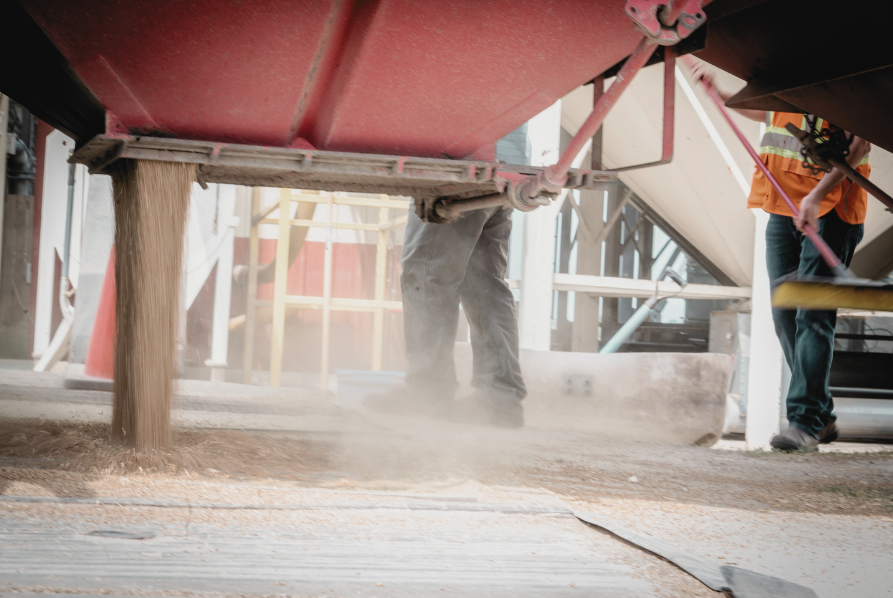
A Manitoba flour producer is “running around the clock” to meet a rise in demand as many people in isolation due to COVID-19 dust off their home-cooking skills and bread-making machines.
Clayton Manness, president and co-founder of Prairie Flour Mills Ltd., said he has noticed an uptick in sales.
“I think it’s all to do with a fear factor that people want to have staple products at home in case this gets really drawn out,” Manness said. “And that has continued, but I don’t expect that to last overly long.”
Against “all good” advice, Manness said he built his independent business 20 years ago in Elie, Man., west of Winnipeg, without the backing of major grain companies. The mill, which primarily produces wheat flour and organic wheat flour, recently saw sales spike by about 30 per cent.
Sales began to surge mid-month, around the time the World Health Organization declared the outbreak a pandemic.
As of Sunday, there were more than 630,000 confirmed cases of COVID-19 worldwide. Manitoba saw its first death this week due to the novel coronavirus and the highest same-day jump in cases, up to 72 confirmed and probable cases as of Sunday.
As restaurants temporarily shutter and the province further restricts public gatherings to a maximum of 10 people, grocers in Winnipeg appear to be struggling to keep staple products such as flour and sugar on their shelves.
Anxious customers have been hoarding food and supplies such as toilet paper against the advice of public health officials and Manitoba Health Minister Cameron Friesen, who said earlier in March it is not necessary to stockpile food.
At the mill, Manness said he has not laid off any of his 35 employees as a result of the outbreak and is running longer shifts to keep up with the high demand. The mill is shipping as much bulk flour as it can produce to supply retailers, including clients in the United States and one of the largest bakeries in Winnipeg.
Manness said he has never seen an interest in baking like this. The per capita consumption of flour at home has been slowly dropping over the decades — until this newfound desire to stock cupboards in residences “where people can bake their own bread and their own products,” he said.
Personal hygiene and physical distancing measures are taken very seriously at the mill because “if we were to get the virus within the plant, then we no longer can produce food for people that want it,” he said.
Manness said bags of wheat will keep pouring in for the next several weeks, which is about how long he imagines the “explosion of new demand” will last. Then they will drop back to a normal cycle — grinding and refining up to 40,000 tonnes of product a year to be bagged up and delivered to retailers.
Manness said he would be “overjoyed” if people kept up the old tradition of baking, which would benefit his business.
“As long as people have access to yeast and sugar, of course, then they can bake bread,” he said.

